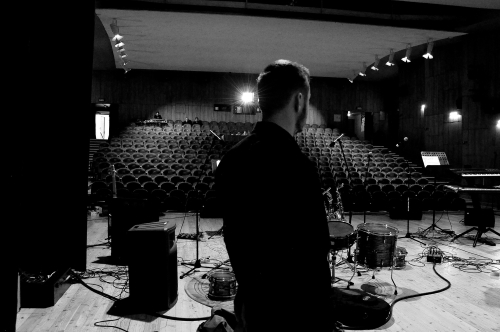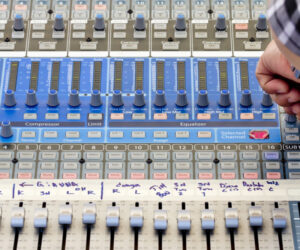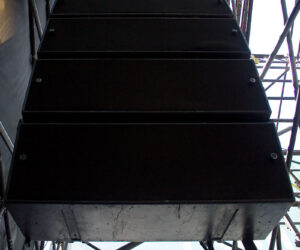Professional audio equipment keeps getting better, as clearly evidenced by enhanced loudspeaker systems, high-resolution digital mixing consoles, ever-more-robust low distortion power amplifiers and digital signal processing “wonder boxes.”
Further, with the advent of new interconnect options, sound systems are beginning to gain immunity from ground loops that can serve up dreaded hum and buzz.
Suffice to say that the improved list goes on and on, with a lot more new equipment coming out soon!
At the same time, the public is ever more aware of sound quality, and this has certainly raised the bar when it comes to expectation. Whether it’s a church, theatrical production, concert or whatever – folks now have a higher expectation when it comes to what they hear.
So we’ve established that both equipment quality and public expectation have escalated.
My question: why isn’t sound quality at live shows/events getting better? (Or is it?)
It would be interesting to go through reviews of concerts over the past 10 years and see if there is any indication that audio at these events has improved at the same increment as the quality of the gear.
Based upon my own experiences, as well as those shared with me by numerous friends and colleagues, and also what I’ve read – I suspect not.
For the sake of discussion, let’s say that the issue of actual, definable sonic improvement remains murky at best.
As we know, sound quality in any venue can vary considerably during the same event at different locations in the coverage area. Even with this acknowledgement, it only seems logical that the overall average should be improving to a notable degree.
Someone Else?
What gives? The answer might lie a little closer than we think. Could it be… us? System operators, mix engineers, whatever we like to call ourselves – are we part of the problem?
You’re probably thinking, “It’s not me! I know what I’m doing. He must be talking about someone else.” Perhaps. But the facts are the facts.
My point is not to accuse anyone of incompetence, but rather, to suggest that we all focus on proper training.
The role of sound mixer/engineer/technician has never been tougher. The wonderful new tools make for a mind-boggling amount of information to learn and implement correctly.
Anyone doing live sound must be up to speed on the total functionality of the console, digital loudspeaker drive system, amplifier diagnostic and control systems, programmable outboard gear, measurement and analysis tools… (It makes me tired just listing it out!)
And this doesn’t even take into account staples of the trade such as coverage and acoustical issues, safe and reliable power, basic electronics, microphone placement, wireless usage, and so on.
The staggering amount of new technology, some of it quite complex, requires dedicated training. Further, very little of this new breed of gear even existed a decade ago.
Consider for a moment that a typical, well-rounded mix engineer now needs to understand how to operate a litany of equipment:
Digital consoles as well as analog offerings, digital processing (with software!); countless power amplifiers; digital effects; measurement and analysis software; wireless microphone systems (don’t forget the wired varieties, too); and every line array series currently and previously on the market…
The broad list was compiled off the top of my head, and it’s barely a start! I started to add up all of the pages of the owners/operators manuals and technical guides for the products I typically encounter, and they total well over 2,000 pages! No one can simply pick up this amount of technical detail on the fly.
Educational Options
Thus, it’s well past time for more structured training programs. Manufacturers need to understand they have an obligation to provide a well-defined training curriculum on complex products; and customers need to understand that they will have to budget for the training, and then show up and pay attention.
Perhaps some new form of training center is called for, one that provides this type of educational service for more than one manufacturer in the industry.
Certainly “trade schools” like Full Sail and SAE do provide sophisticated training, but the courses are more designed to lead to a degree rather than offering practical, immediate instruction.
It might be a good idea for these institutions to consider “clinic style” training programs that last several days and thoroughly cover the kinds of complex devices and technologies noted above. Imagine a three-day “executive-style seminar” on digital console operation and application. Sounds pretty good, doesn’t it? Thankfully, many manufacturers have begun their own equipment specific training courses, accomplishing just that.
Clearly, it takes a lot more knowledge and skill to run a live sound system today than just a few years ago.
Regardless of the exact form, it’s incumbent upon working professionals to make the commitment to training. Things are likely only going to get more – not less – complicated from this point forward.
It’s time to take full advantage of what can be achieved with the new tools of our trade. We need to get up to speed, now, or operate in a vacuum where untapped potential goes largely unmet. As professionals, let’s be sure to be the solution rather than the problem.















